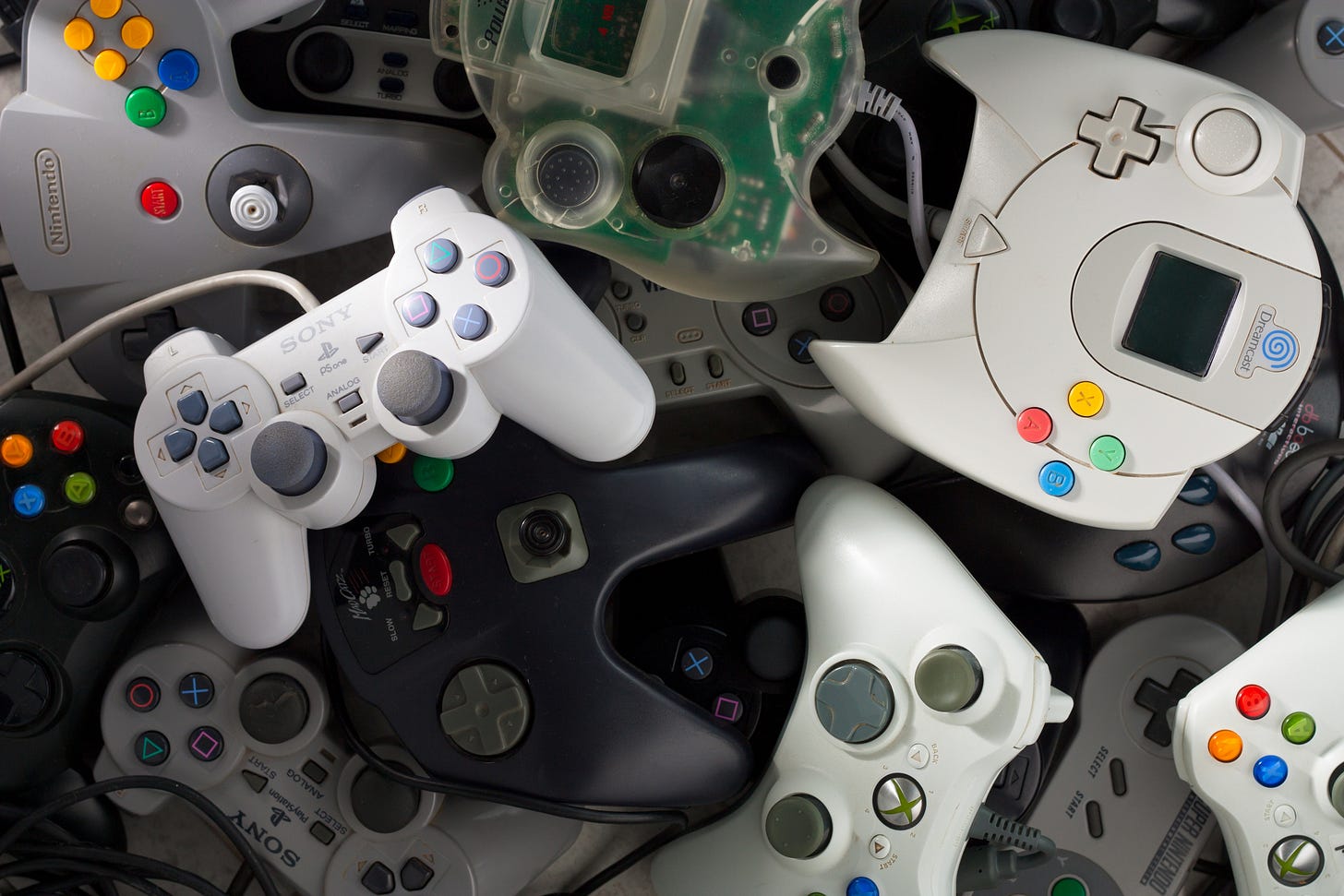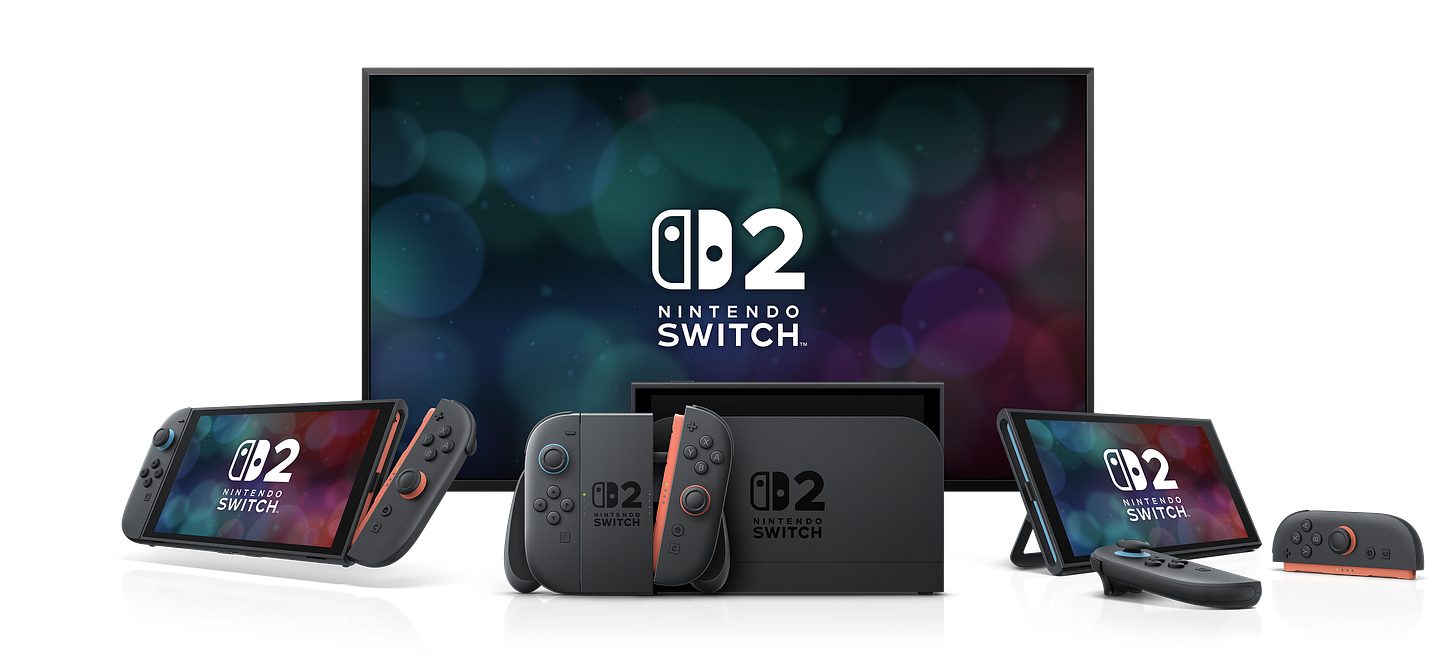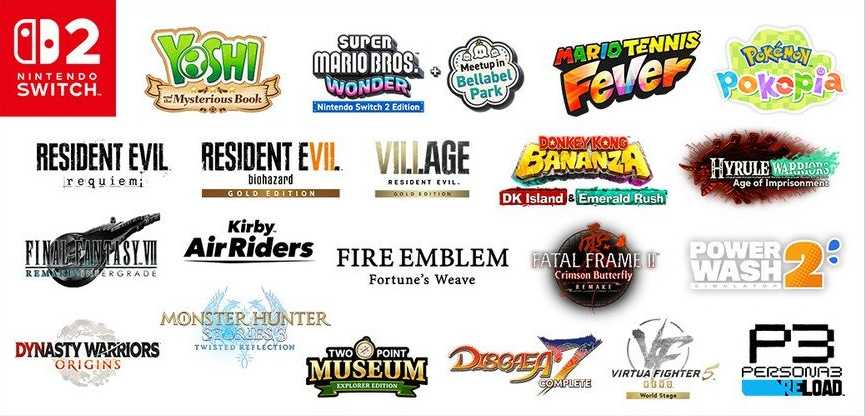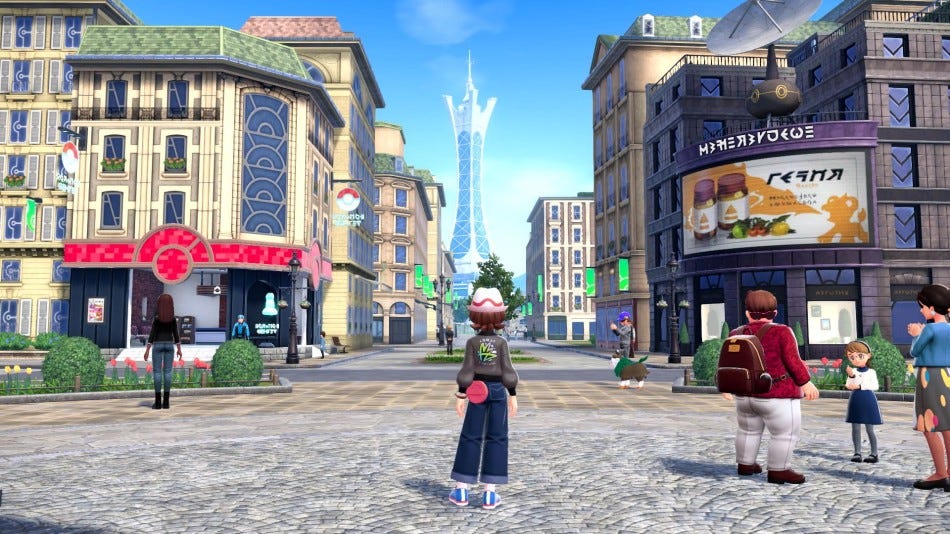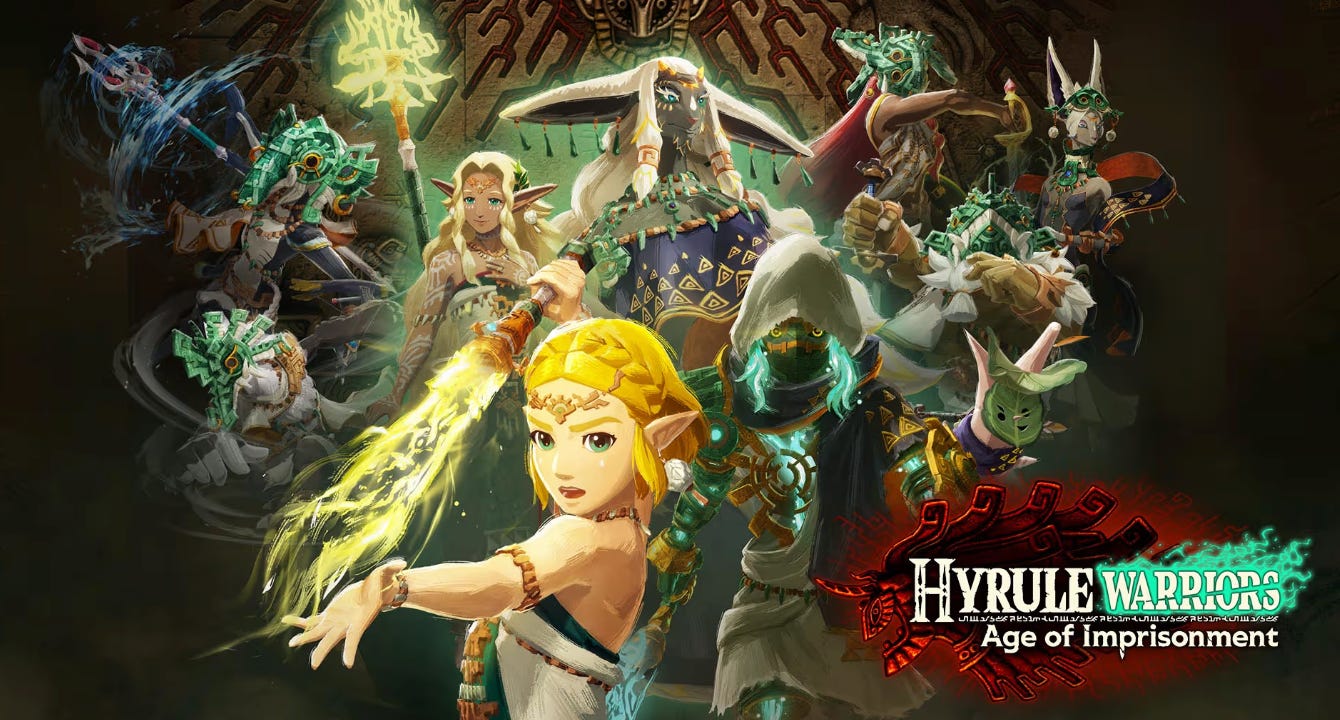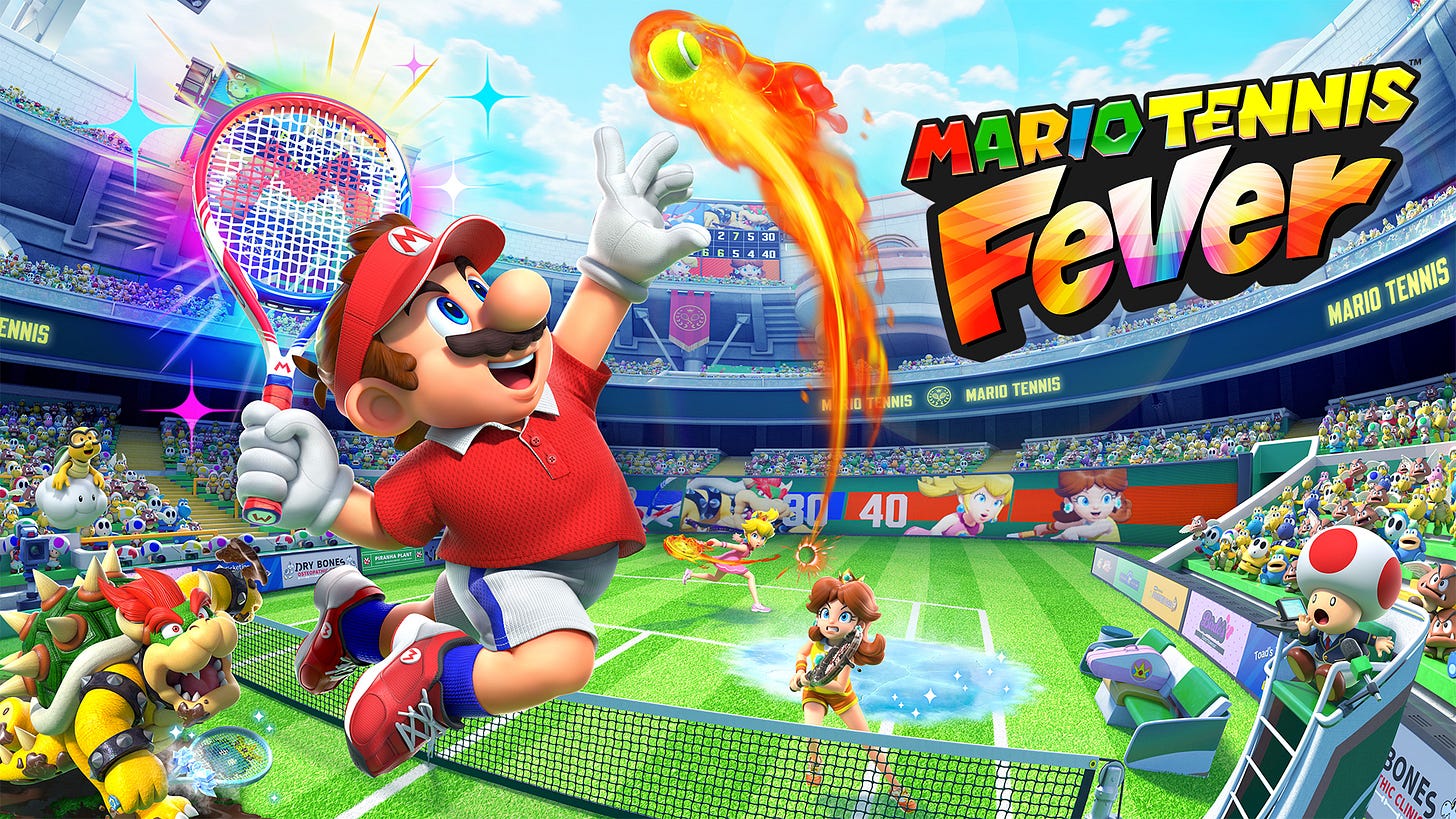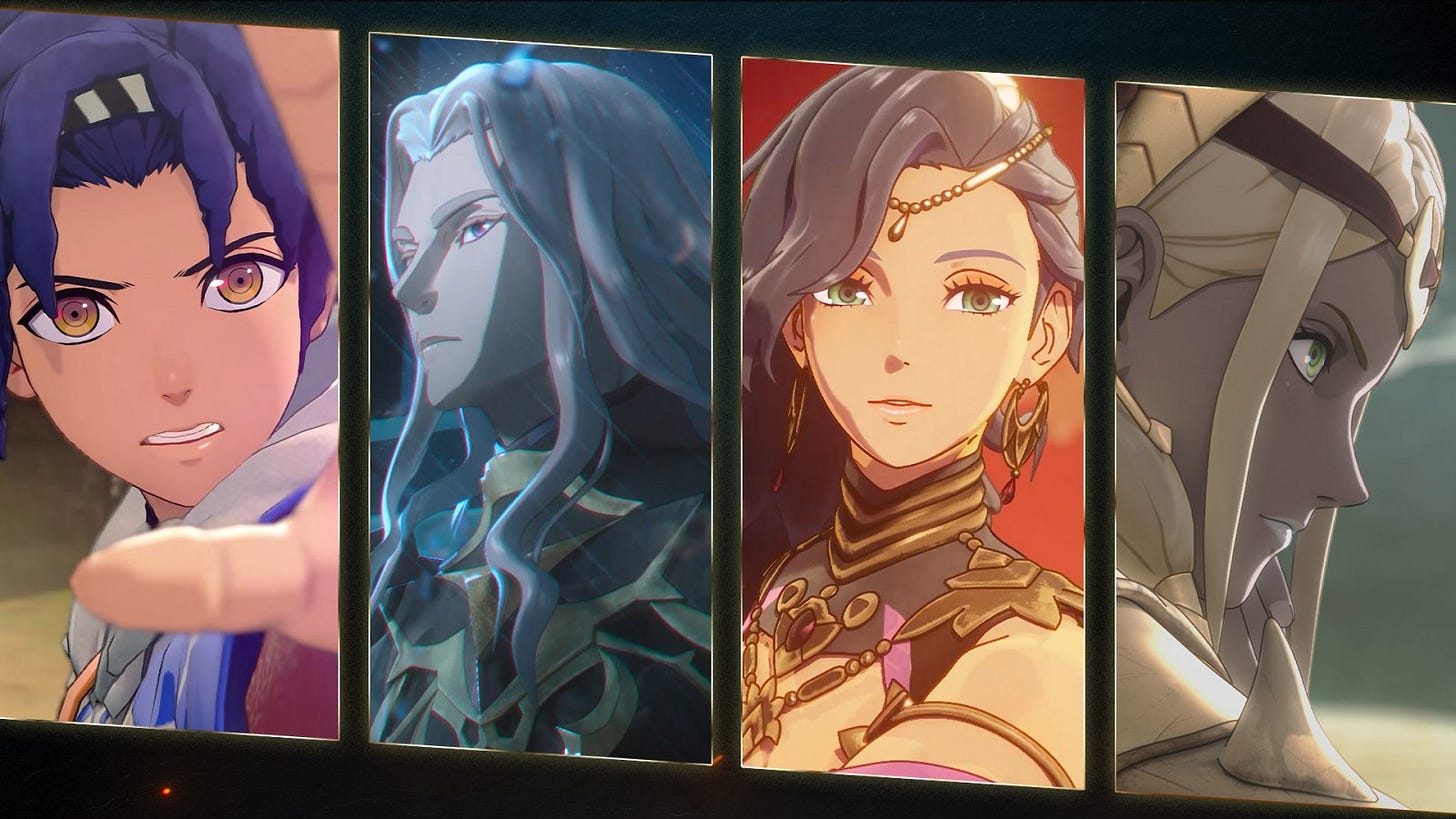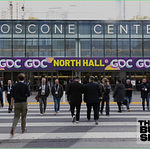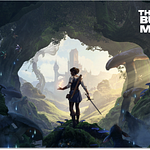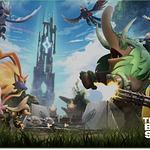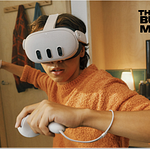Listen now on Apple, Spotify or YouTube
In This Edition
- Console troubles
- Nintendo Direct reviewed
- Popularity of remakes and remasters
Hello! Welcome back. I hope you’re having a peaceful week
On today’s episode of The Game Business Show, we reunite with Stephen Totilo, the man who guest-hosted on our first ever episode. And this time, we discuss retro games, the latest Nintendo Direct and the future of video game consoles.
Totilo is, of course, a friend of The Game Business and the reporter/founder of GameFile. And during our chat, he tells us about his next piece of journalism diving into Capcom’s historical sales figures. It sounds right up my street.
You can watch or listen to our conversation above. But if that isn’t your thing, all the data and insight from the episode can be found below.
I hope you enjoy it!
Video game consoles in crisis?
Video game consoles face a challenging future due to rising costs and an ageing user base, predict leading data firms.
However, with this console generation delivering record revenues, and with a strong active user base across devices, are were merely witnessing a change in the role of the console within the modern game industry?
This topic followed comments from Capcom president Tsujimoto Haruhiro in an interview with Nikkei, who expressed concern about the high price of PS5 and the impact that is having on the firm’s ability to sell more copies of the recently released Monster Hunter Wilds.
Console ownership is increasingly focused on the more affluent households, data shows. US analytics firm Circana says that households with a $100,000+ income now make up 43% of video game hardware sales, a rise from 36% just a few years ago.
The audience is also getting older in the US. According to Circana, 18 – 24-year-olds only accounted for 3% of video game hardware purchases in the year ending July 2025, which is down from 10% for the same period ending July 2022. The average age of console players in 2024 was 27.9 years old. That’s up from 24.2 years old in 2018.
“The average age of console players in 2024 was 27.9 years old. That’s up from 24.2 years old in 2018”
Data firm Ampere says that when it comes to teens and young adults, this group are “still using consoles as much today as they were a few years back”. However, there is a moderate shift in the share of console players aged between 25 – 44-year-olds into the older age range. Ampere suggests that this may be due to hardware pricing (with younger gamers playing on parents’ consoles), and the increased competition on people’s time (from things such as video streaming and TikTok)
If we look at current performance, consoles are generating significantly more revenue than ever before. In 2022, console hardware revenue surpassed $6.6 billion in the US (Circana data), the highest it has ever been, and it reached $6.5 billion the year after. That number dropped to $4.9 billion in 2024, but that is still a higher revenue figure than almost every year during the previous console generation. In terms of revenue, this is the biggest console generation of all time, even surpassing the Wii, 360 and PS3 era.
Note: console sales here include PlayStation, Xbox and Nintendo Switch, Handheld-only devices are discounted.
That revenue result is driven by the higher cost of hardware. Because when we start looking at unit sales, things are more complicated. PS5 is currently tracking slightly behind PS4, while Xbox Series S and X significantly lag Xbox One.
Last year in the US, 12 million console units were sold, the lowest figure in eight years. Meanwhile, Ampere estimates that by the end of 2025, the number of active devices for the PS5/Xbox Series generation will be 14 million behind what the PS4/Xbox One achieved during the same point in their lifecycle. The company estimates that gap will widen to 20 million by the end of 2026.
The situation does vary by platform, of course. PlayStation is trending well this generation, and currently has 124 million active users across both PS4 and PS5, a rise of six million over the year before.
However, the potentially smaller active install base for consoles overall, plus the high cost of hardware, subscriptions and software, certainly poses a challenge to third-party publishers looking to grow brands such as Monster Hunter.
Nevertheless, it would be premature to predict a decline for the sector. Nintendo Switch 2 just delivered the biggest launch for a dedicated games device, PlayStation just raised its financial outlook on the back of strong consumer engagement, while Xbox is preparing to launch two new handhelds (although they’re more closely associated with PC handhelds). Furthermore, the launch of Grand Theft Auto 6 next year will deliver a spike in console users and sales.
But there remain some long-term pressures on the sector:
The cost of consoles are continuing to rise during a time when families are growing concerned about food prices and tariffs.
Consoles are not the entry-level game devices anymore, with tablets and smartphones becoming the typical ‘starter’ device for younger games. This poses a challenge for console makers on how to ‘upgrade’ customers from those devices to dedicated games machines.
And with the rising cost of game development, we’re witnessing a drop in exclusives and an increased multiplatform focus from publishers. Even Xbox and PlayStation are releasing games on other devices (including PC). This potentially weakens the appeal of these machines.
In the past, I’ve reported on video game analysts predicting the death of PCs, the death of consoles and the death of handhelds. None of that came to pass. However, the market has broadened, gamers have shifted, and there is increased evidence that the audience for video game consoles, and the role these devices play in the wider ecosystem, is changing.
Nintendo Direct delivered cult favourites, but lacked blockbusters
Nintendo delivered a highly anticipated one-hour Direct last week, announcing its release slate for the next nine months.
Headlined by the Super Mario Bros 40th anniversary, the Direct saw a number of game reveals, including a new Fire Emblem, a new Mario Tennis, a new Yoshi game, a new Pokémon spin-off called Pokopia, plus ports of Super Mario Galaxy and Super Mario Galaxy 2. The event also showcased multiple third-party titles, headlined by a Switch 2 version of the upcoming Resident Evil: Requiem.
There was also a surprise return for the ill-fated Virtual Boy within the Nintendo Switch Online subscription service.
The Direct featured titles for Switch 1 and Switch 2, and although there were a number of fan-favourites during the showcase, there was a lack of major launches, particularly for Nintendo Switch 2.
Here’s The Game Business run-down of the big Nintendo Switch 2 exclusives and their potential:
Pokémon Legends: Z-A
Switch 2 exclusive: No
Release Date: October 16, 2025
The biggest game on Nintendo’s slate by far. The previous game, Pokémon Legends: Arceus was a fan favourite that sold 15 million units. This sequel is coming to Switch 1, but will likely run far better on Switch 2, and there is even a Switch 2 hardware bundle available from launch.
Kirby Air Riders
Switch 2 exclusive: Yes
Release Date: November 20, 2025
This is the sequel to the poorly received (but still loved) Kirby Air Ride on Nintendo GameCube from 2003. It sold modestly well on that system (at just shy of two million units). Kirby has grown since then, with the last major title in the series – Kirby and the Forgotten Land – delivering 7.5 million sales. Nintendo has been heavily pushing this game since its full reveal ahead of Gamescom 2025.
Hyrule Warriors: Age of Imprisonment
Switch 2 exclusive: Yes
Release Date: November 6, 2025
The cross-over series between Zelda and Dynasty Warriors has been a modest hit. The last game in the series, Age of Calamity, released in 2020 and went on to sell four million copies. This title expands the story of 2023’s The Legend of Zelda: Tears of the Kingdom.
Metroid Prime 4: Beyond
Switch 2 exclusive: No
Release Date: December 4, 2025
Metroid is well loved by fans, but it’s actually one of Nintendo’s smaller franchises. 2021’s 2D Metroid game, Metroid Dread, remains the series high point (commercially) with over three million units sold. The latest trailer featuring hero Samus on a motorcycle has generated mixed reactions.
Mario Tennis Fever
Switch 2 exclusive: Yes
Release Date: February 12, 2026
Mario Tennis is the most popular of the Mario sports games. The last title on Nintendo Switch, 2018’s Mario Tennis Aces, sold 4.5 million units worldwide.
Yoshi and the Mysterious Book
Switch 2 exclusive: Yes
Release Date: Spring 2026
Yoshi games routinely do between three and four million units. The 2019 game Yoshi’s Crafted World sold just shy of 3.4 million units. The franchise typically skews towards younger players, and this game launches during the same window as the next Mario movie.
Fire Emblem: Fortune’s Weave
Switch 2 exclusive: Yes
Release Date: 2026
2019’s Fire Emblem: Three Houses was a breakout hit and delivered over 4.1 million sales, and this game is billed as a successor to that. (2023’s Fire Emblem Engage was a more traditional take on the series and wasn’t as successful.)
Overall, we saw plenty of sequels to Switch 1 games that did around three to four million units during that generation. We’re still waiting on big potential system sellers such as Animal Crossing, The Legend of Zelda, Super Smash Bros and Mario.
Meanwhile…
Fortnite creators will be able to sell in-game items from December. The added monetisation comes after pressure from Fortnite developers, which have been frustrated by the inability to generate the sort of revenue that can be achieved on Roblox. CEO Tim Sweeney told us in June that he was wary of over-monetising Fortnite out of concerns of ruining the experience for fans.
Consultancy firm MTM says that 90% of PC and console gamers have played a remaster or remake in the last year (based on a survey of 1,500 gamers). 85% said they have played a remake or a remaster of a game they hadn’t originally played. But my favourite stat? 35% of players said they feel remakes/remasters are better when gameplay or narrative has been changed. 30% said they feel remakes/remasters are worse when gameplay or narrative has been changed. And 35% agreed with both equally. Make of that what you will.
TV and movie adaptations of video games boost player numbers by almost 140% on average, according to Ampere Analysis. The Fallout TV show in April 2024 boosted the franchise’s monthly active users by 490%. Meanwhile, The Last of Us TV show saw franchise engagement increase 150%. Meanwhile, the Minecraft movie grew Minecraft engagement by 30%. We did a deep dive on some of this earlier in the year.
A new UK games event by Game Republic, called New Horizons, takes place in Middlesborough on October 16. The event will feature a keynote session where I will be speaking to comedian and Taskmaster star Maisie Adam. See you there?
That event is in addition to the London Investment Summit, which takes place a week later alongside MCM Comic-Con. The event is free for industry people, and is headlined by a live version of The Game Business Show featuring games legend Peter Moore. I know I mentioned it last week, but I really think you should come. You can even check out comic-con… if that’s your thing.
That’s it for today’s edition of The Game Business. Join us next week for more, including details of our new subscription tier. Until then, thank you for reading.



